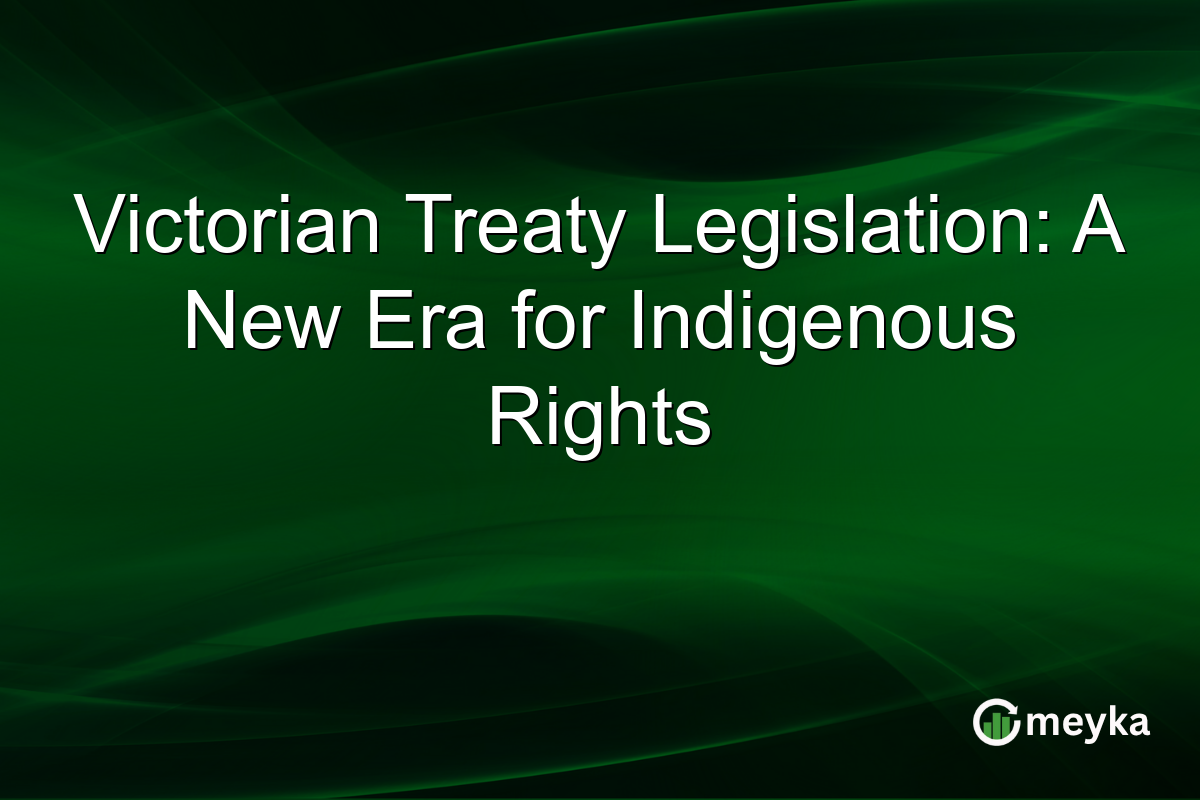Victorian Treaty Legislation: A New Era for Indigenous Rights
The Victorian Treaty Legislation marks a monumental moment in Australia’s ongoing journey toward reconciliation. By instating formal agreements with Indigenous traditional owners, Victoria has become a pioneering force in embedding concrete frameworks to support Indigenous rights. This legislation empowers the Gellung Warl body, offering them a pivotal role in shaping policies that directly affect their communities. The passage of this law represents not just a legal shift but a significant step toward meaningful governance reform in Australia.
Understanding the Victorian Treaty Legislation
The Victorian Treaty Legislation, passed in late 2025, lays the groundwork for formal agreements between Indigenous communities and the government. This legislative breakthrough is a first for Australia, emphasizing the state’s commitment to recognizing and upholding Indigenous rights. The law empowers First Peoples Victoria, a body crucial in negotiating these treaties. These agreements aim to address historical injustices and provide platforms for Indigenous voices, reflecting a growing commitment to reconciliation and social justice. More information is available on the ABC News website.
Empowering Indigenous Communities
This legislation is a game-changer for Indigenous rights in Australia. The Gellung Warl body, which plays a central role in these negotiations, now has increased influence over policies impacting Indigenous communities. By institutionalizing these rights, the focus shifts to building genuine partnerships between the government and First Peoples Victoria. This empowerment is expected to foster community-led governance and enhance cultural preservation, paving the way for stronger societal relationships and more effective policy outcomes.
Implications for Policy and Social Justice
Victoria’s pioneering approach sets a precedent for other Australian states. The legislation not only acknowledges the historical significance of Indigenous cultures but also initiates a practical path for restitution and governance reform. This development enhances Australia’s legal framework by embedding Indigenous voices within decision-making processes. Furthermore, it encourages a national dialogue around reconciling past grievances with progressive, inclusive policies. The Guardian provides additional context on this landmark development here.
Reactions and Future Outlook
The passage of the Victorian Treaty Legislation has been met with widespread approval from Indigenous leaders and advocates. This historic milestone is seen as a foundational step toward broader nationwide reforms. As these treaties start to influence policy directions, there will likely be more emphasis on sustainable development, cultural preservation, and social equity. This initiative may inspire legislative activities in other regions, fostering a unified approach to Indigenous affairs across Australia. Learn more about this development from First Peoples Victoria here.
Final Thoughts
The Victorian Treaty Legislation signifies a transformative chapter in Australia’s pursuit of justice for Indigenous Australians. By formalizing agreements with Indigenous communities, Victoria leads in renewing its commitment to cultural integrity and equitable governance. This legislative framework not only empowers Indigenous voices but also addresses longstanding inequities with authoritative backing. As other states observe Victoria’s groundbreaking progress, it paves the way for a unified national approach to Indigenous rights. For Australia, this isn’t just a legal evolution; it’s a significant societal leap toward comprehensive reconciliation.
FAQs
The Victorian Treaty Legislation is a groundbreaking law that establishes formal agreements with Indigenous traditional owners in Victoria. This marks the first such legislation in Australia, aiming to uphold Indigenous rights and influence policy directly affecting Indigenous communities.
The legislation empowers Indigenous communities by giving bodies like the Gellung Warl increased authority to negotiate treaties and influence policy. This ensures that Indigenous voices shape decisions impacting their cultural and social landscapes, promoting community-led governance.
This legislation sets a precedent for Indigenous rights in Australia, enhancing legal frameworks and promoting reconciliation. It encourages national dialogue and may inspire similar reforms in other states, ultimately leading to more inclusive governance.
Disclaimer:
The content shared by Meyka AI PTY LTD is solely for research and informational purposes. Meyka is not a financial advisory service, and the information provided should not be considered investment or trading advice.






